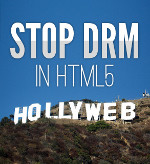Source: http://www.reuters.com/article/2011/02/10/us-usa-congress-paul-idUSTRE7190CZ20110210?pageNumber=1
By Andy Sullivan
WASHINGTON | Wed Feb 9, 2011 8:25pm EST
(Reuters) – Republican Ron Paul, an outspoken critic of the Federal Reserve, called Chairman Ben Bernanke “cocky” on Wednesday in the first hearing he held as the head of a House of Representatives panel that oversees the U.S. central bank.
Paul, a former presidential candidate who has waged a fierce battle for decades against the Fed, earned a platform to air his views after the Republicans won control of the House in November elections and made him chairman of a banking subcommittee.
Paul’s 2008 presidential bid earned him a fervent grassroots following and many Republicans now share his skeptical view of the Fed after its unprecedented actions to fight the worst economic downturn since the 1930s.
At his first hearing of the subcommittee, Paul reiterated some of his unvarnished criticism of Bernanke.
“He is really cocky about this,” Paul said about Bernanke’s plans to unwind the toxic assets the Fed took on from troubled banks during the height of the 2007-2009 crisis.
But Democrats were more concerned by the writings of one of the witnesses, who has authored books and essays that harshly criticize President Abraham Lincoln and support the right of states to secede from the union ahead of the U.S. Civil War.
The Southern Poverty Law Center says Loyola College professor Thomas DiLorenzo has links to the League of the South, which it classifies as a hate group.
Democrats asked why Paul had invited DiLorenzo to testify about the link between monetary policy and job creation.
“You work for a southern nationalist organization that espouses very radical notions about American history,” Democratic Representative Lacy Clay told DiLorenzo.
“I still do not understand you being invited to testify today on the unemployment crisis, but I do know that I have no questions for you,” Clay said.
Paul said he was unfamiliar with that side of DiLorenzo’s work.
“I think that that’s typical of people who can’t compete on ideas, they have to try to discredit the individual,” Paul told Reuters as he signed copies of his book, “End the Fed,” after the hearing.
DiLorenzo told the subcommittee that the federal government should not have the power to seize failing banks in order to protect depositors’ assets, and that the economy would have been better off had the Obama administration allowed tottering businesses like General Motors to fail.
NO BETTER THAN RUSSIANS
“I see no reason why we Americans are better at central planning today than the Russians were in the 20th century, and that’s basically the mind-set you’re talking about,” DiLorenzo said
Ohio University economics professor Richard Vedder accused lawmakers of corruption for supporting mortgage finance giants Fannie Mae and Freddie Mac and said the banking industry would be better able to manage financial crises on its own, as J.P. Morgan did in 1907.
“At least J.P. Morgan had some skin in the game. When the banks failed, he failed,” Vedder said. “What does Bernanke have in the game? He gets his salary anyway, then he goes off to work for Goldman Sachs.”
Josh Bivens, an economist at the liberal-leaning Economic Policy Institute, represented the view held by many mainstream economists who say the recession would have been much worse had the Fed not lowered interest rates and pumped money into the economy through quantitative easing.
Just because the Fed’s actions failed to prevent a recession does not mean they were ineffective, he said.
“Imagine a town that is building a levee wall in response to a flood. You can say, ‘It’s the biggest wall we’ve ever built, the water keeps coming over, we should stop,'” Bivens said. “You have to build a wall as big as the shock.”
(Editing by Mohammad Zargham)
Related Articles
- Slate: Can Ron Paul crush the Fed? (msnbc.msn.com)
- US Rep Paul: Fed Failing on Both Price Stability,Econ Growth (forexlive.com)
- Rep. Ron Paul slams bond-buying program (marketwatch.com)
- Thrilling Thursday – What Goes Up… (philstockworld.com)
- Glenn Reynolds, Richard Vedder Talk Higher Education Bubble on InstaVision (reason.com)



 Moorbey'z Blog
Moorbey'z Blog Nikola Tesla on PBS
Nikola Tesla on PBS


Leave a comment